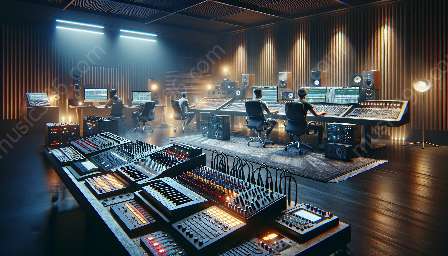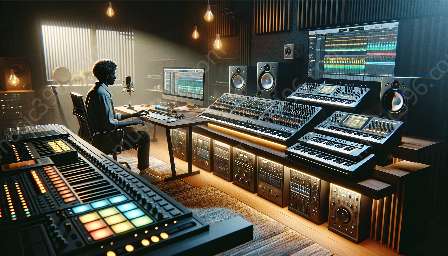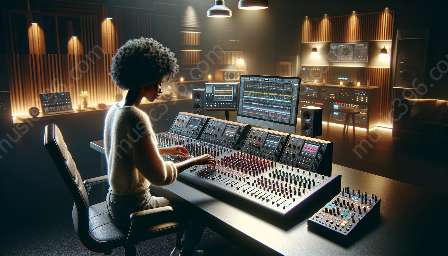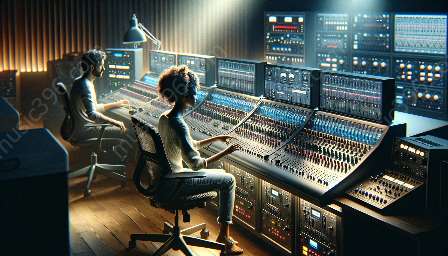Music technology and DIY culture have intersected to create a significant impact on the music industry and society as a whole. This article delves into the sociocultural implications of DIY music technology, exploring its influence on creativity, accessibility, and the democratization of music production.
The Rise of DIY Music Technologies
In recent years, the accessibility of technology has empowered musicians and producers to create their own music tools and equipment. DIY music technologies encompass a wide range of innovations, from custom modular synthesizers to homemade digital audio workstations. This trend has not only democratized music production but has also fostered a culture of innovation and experimentation within the music community.
Empowerment and Creativity
DIY music technology has empowered artists to take control of their creative process, allowing them to customize their instruments and gear according to their unique preferences. This personalized approach to music creation fosters a sense of ownership and originality, encouraging artists to explore new sonic possibilities and push the boundaries of traditional music production.
Accessibility and Inclusivity
By providing affordable alternatives to commercial music technology, the DIY movement has made music production more accessible to individuals from diverse socioeconomic backgrounds. This newfound accessibility has played a pivotal role in diversifying the music industry, giving voice to communities that were previously underrepresented in mainstream media.
Community and Collaboration
DIY music technology has spurred a sense of community and collaboration among artists, makers, and technologists. The open-source nature of many DIY projects has facilitated knowledge sharing and collective problem-solving, fostering a supportive ecosystem where individuals can learn from one another and collaborate on new innovations.
Challenges and Ethical Considerations
While DIY music technology has brought about numerous benefits, it also raises ethical considerations regarding intellectual property, safety, and environmental impact. The unauthorized replication of commercial products, potential safety hazards associated with homemade instruments, and the environmental footprint of DIY production are important factors to consider within this evolving landscape.
Impact on the Music Industry
The emergence of DIY music technologies has disrupted the traditional dynamics of the music industry, challenging established business models and corporate monopolies. Independent musicians and DIY enthusiasts have gained greater autonomy in the production and distribution of their music, reshaping the industry's power dynamics and paving the way for new forms of artistic expression.
Social and Cultural Influence
Beyond its impact on the music industry, DIY music technology has permeated popular culture, influencing the way society perceives creativity, technology, and individual agency. The ethos of DIY culture has expanded beyond the realm of music, inspiring individuals in various creative fields to embrace a hands-on, self-sufficient approach to innovation and expression.
Conclusion
The sociocultural implications of DIY music technology are far-reaching and continue to unfold in the music industry and society at large. By empowering artists, promoting inclusivity, fostering community, and challenging established norms, DIY music technology has significantly reshaped the landscape of music production and consumption. As the DIY movement continues to evolve, its sociocultural impact will undoubtedly shape the future of music technology and creativity for years to come.

























